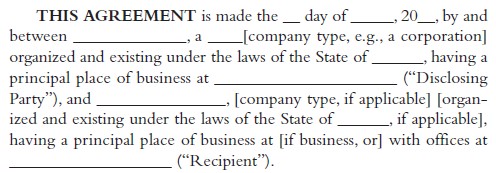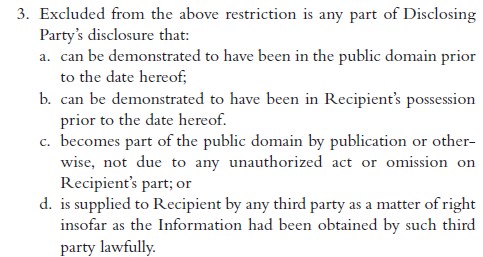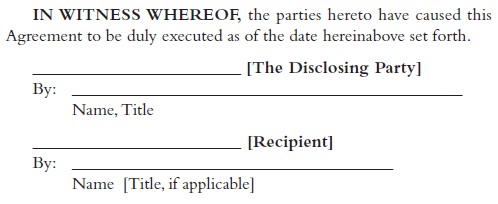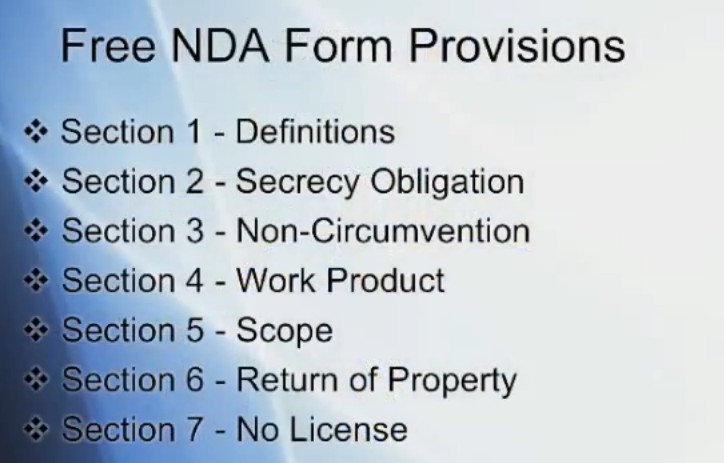Elements integral to most CDAs:
- Preamble & list of the parties entering into the agreement.

- Recitals, preamble, and “whereas clauses” that lay out the broad goals of the agreement.

- Definitions of terms used in the agreement.

Confidentiality clauses. DISCLOSURE

- Conditions on the use (USAGE) of the confidential information, which is a detailed description of the ways in which the receiving party may and may not use the information.

***Preventing DISCLOSURE alone does not prevent USAGE of confiential info. Typically usage limited to EVALUATION of information to determine next step (contract, collaboration, etc.).
***NON-CIRCUMVENTION: no reverse-engineering, use of technology developed during CDA discussions.
- Exclusion clauses.

- Territory (EXPORT) clauses that define the geographic regions in which the licensee is permitted to make, use, and⁄or sell the technology.
- Liability clauses that establish who will accept liability for a product and set terms of liability.

- Payment clauses that define the forms of payment, if any, of up-front fees and⁄or royalties (Terms will ideally balance the licensor’s need for short-term income and the licensee’s capacity to make further investments for longer-term development.).

- Term and termination, establishing how long the agreement will last and under what conditions the agreement may be terminated (SEVERABILITY).

- Jurisdiction, warranties, and notices, which specify: (1) where disputes are to be resolved, (2) that the licensor does, in fact, own the intellectual property to be licensed, and (3) where official communications are to be directed.

- Illegal⁄ unenforceable provisions that specify which terms can be discontinued due to invalidity without rendering the agreement void.
- Requirements for documentation, which describe the requirements for written records (may include keeping track of the disclosed information, whether disclosed in writing or orally).

- Subject law, which specifies where the parties wish to have the agreement interpreted and adjudicated (including arbitration clauses).

- Signatories (representatives, agents) who have the authority to bind their respective organizations, called principals, to the terms and provisions of the agreement.


